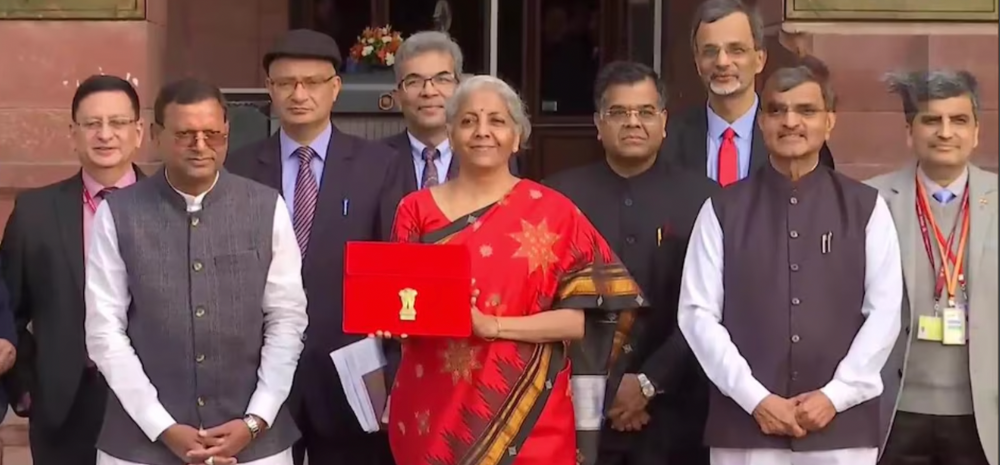This is a Guest Blog by Rajat Deshpande, CEO and Co-Founder, FinBox

The 2023 Budget was under an immense amount of pressure – first, considering that it’s the current government’s last full budget before the 2024 general election, and second, because it was faced with the tough task of steering the country through an expected global recession.
Whether it’s lived up to the expectations is a conclusion that can only be made once we see the recommendations in action – but it’s safe to say, we’re off on the right foot.
For starters, startups – and FinTech in particular – was placed front and centre this year. The FM announced an Agriculture Accelerator Fund to encourage agri-startups working on challenges faced by India’s farmers. It will also foster the use of modern technologies to improve agricultural productivity and profitability.
Digital public infrastructure for agriculture is also set to be built as an open source, open standard and interoperable public good, which will offer relevant information services for crop estimation, market intelligence, and support to agri-tech startups.
The budget also proposed a National Data Governance policy that will promote innovation by startups through access to anonymised data. Good to see the government prioritising data policy! It should go a long way in allaying the fears Indians have about how and where their data is being used. This will further improve access to services, help bring new products to market and overall make the entire data economy much stronger if the frameworks and guidelines are business-friendly while keeping customer privacy concerns in mind.
Further the date of incorporation for income tax benefits to startups has been extended from 31.03.23 to 31.3.24. The carryforward of losses on change of shareholding of startups has also been extended from seven years of incorporation to ten years.
And in yet another move to foster entrepreneurship and business growth, more than 39,000 compliances have been reduced and more than 3,400 legal provisions have been decriminalised.
FinTechs in particular are set to benefit from the proposed simplification of the KYC process. It will move from a one size fits all to a risk-based approach. This will also encourage financial regulators to have a KYC system fully amenable to meet the needs of digital India. As the FM mentioned, India is now the third largest ecosystem for start-ups globally – and I hope these measures will put the country on the fast-track to the number 1 spot.
We’ve talked at great length about the role of MSMEs in India’s economy – despite which they remain chronically credit-starved. The government had launched the Emergency Credit Line Guarantee Scheme to help the sector tide over the pandemic, and extended the same last year.
This year, the budget includes an INR 9000 cr infusion into the corpus – and the revamped scheme is meant to take effect from April 2023. It will enable additional collateral-free guaranteed credit of INR 2 lakh crore and reduce the cost of credit by about 1%.
The formation of the National Financial Information registry and Digilocker for MSMEs too is a huge step for the credit underserved and is set to improve credit flow and promote financial inclusion.
However, Digilocker does need to be marketed well enough and incentivised so that businesses use it to avail credit. The National Registry too should be linked to the Account Aggregator framework to enable more use cases.
I’d mentioned that I was hoping for a strong focus on digitisation and inclusion in the 2023 budget – and I’m certain that Startups and especially FinTechs across the board will be fairly content with what the government has given us to work with.
1. The budget has finally put the data policy back on the table that’s a positive
2. Sops for digital payments are good but they need to flow to market participants on time
3. the national financial registry is a good step but it should get linked to AA to enable more use cases
4. Need longer-term infrastructure funding to maintain and build digital infra like AA, ONDC etc.
5. Digilocker for entities is a good step but it needs to be marketed well enough and incentivised so that people actually use it and avail easier credit through it
It’s been heartening to see that financial inclusion has been clearly laid out as a priority in the 2023 budget, and been backed up by solid policy recommendations. For starters, the government has revamped the ELCGS scheme, infusing INR 9000 cr into the corpus and reducing the cost of credit by 1%. The formation of the National Financial Information registry and Digilocker for MSMEs too is a huge step for the credit underserved and is set to improve credit flow and promote financial inclusion.
Agriculture wasn’t left behind either – the FM proposed three centres of excellence for AI where leading AI players will collaborate in areas of health and agriculture. We’ve been talking about tech and agri for a while now, and it’s thrilling to see it come to fruition.











